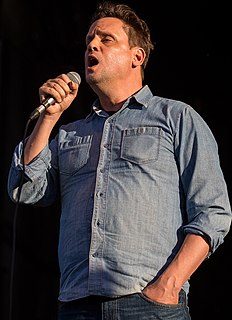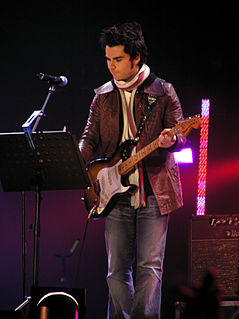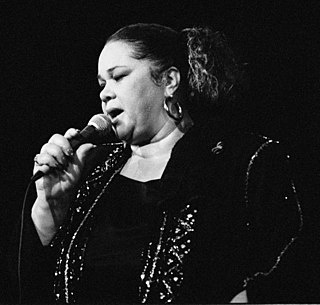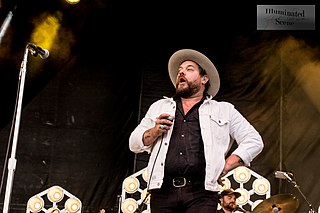A Quote by Deborah Cox
The opportunity to record the song came when Phil Collins' record label, Atlantic, was doing a tribute album to him and they asked all these different artists to do renditions of his songs.
Related Quotes
I got on the phone with the president of my label and I said, "Obviously, I write songs in a lot of styles and play a lot of different kinds of music. We're getting toward the end of our business collaboration. If you could envision a record that you wanted to hear from me, what kind of record would it be?" It wasn't like asking him to fill an order, it was really just a conversation. For all the things I'd ever asked him, this was one thing I'd never asked, and I don't know why. So I was curious. And the thing that he was most interested in hearing was a solo record.
You're not going to hit it every single time, and that's why, when I record an album, I do probably close to 50 songs. Each song I record has to get better. If it's not better than the last song that I made, it'll usually linger for a couple of months, and then it'll be put on the backburner, and then there'll be another song that I do, and then it often doesn't make it on the album.
Phil Ramone and Quincy Jones were very close. Phil Ramone was one of the greatest record producers of all time. I don't know if they talk about him enough in the film, but he produced [Frank] Sinatra, Barbra Streisand, all of Billy Joel, Paul McCartney - Phil Ramone was one of the major record engineers and producers.
That's what is so great about being able to record a 13-song album. You can do a very eclectic group of songs. You do have some almost pop songs in there, but you do have your traditional country, story songs. You have your ballads, your happy songs, your sad songs, your love songs, and your feisty songs.




































